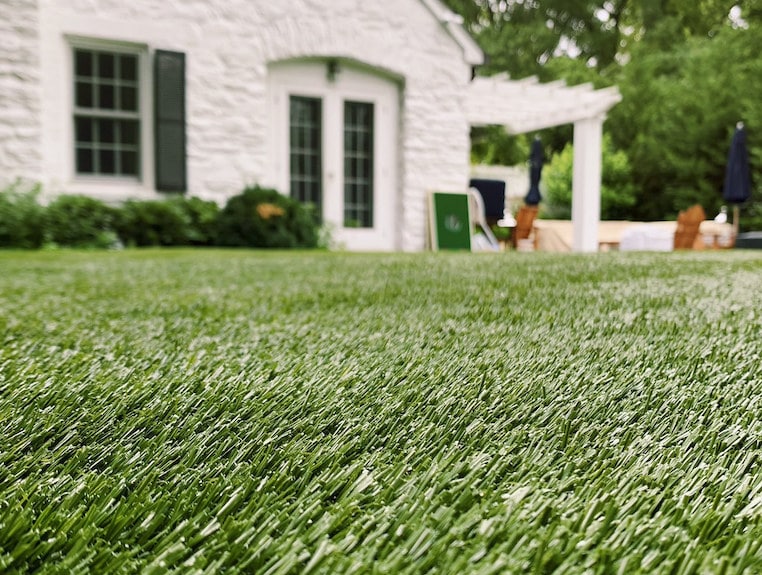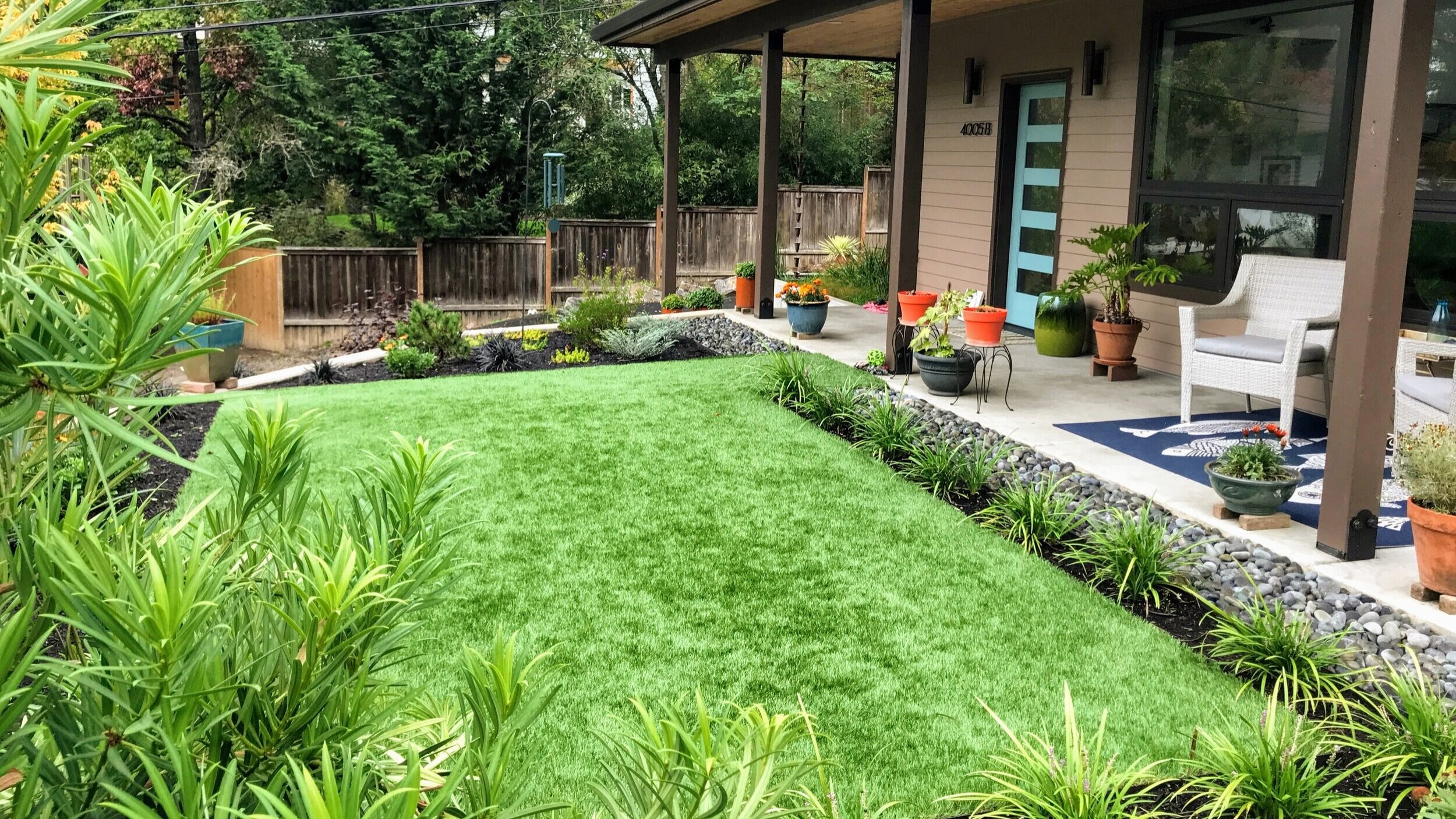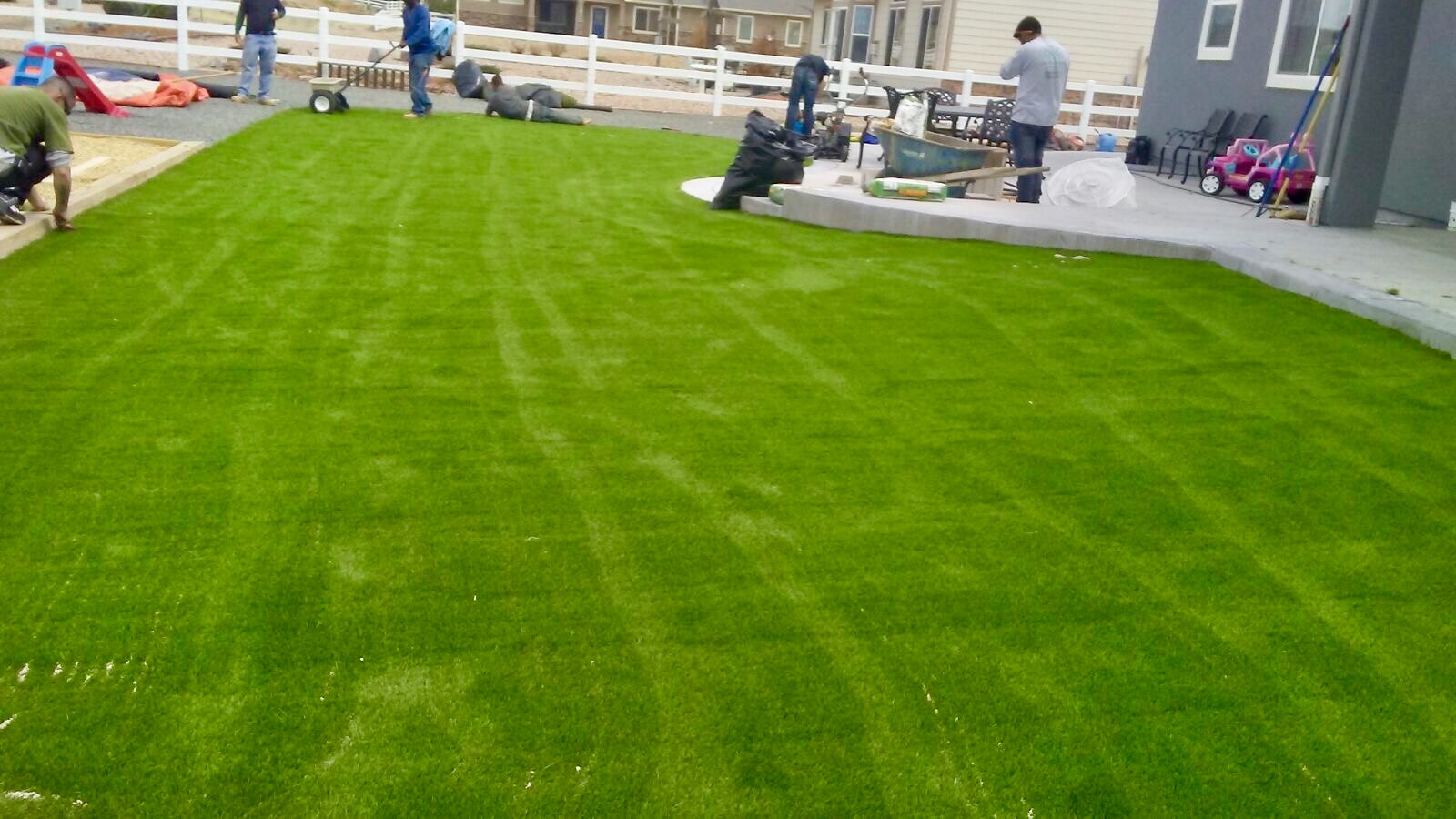Dependable Artificial Turf Companies Phoenix for a Beautiful and Evergreen Lawn
Explore the Environmental Perks of Opting for Artificial Turf Solutions
The fostering of fabricated lawn options offers a compelling chance to deal with pushing environmental difficulties. By dramatically reducing water usage and minimizing the application of damaging chemicals, these options not just advertise lasting landscaping however likewise secure regional environments.
Water Preservation Perks
Among the most significant advantages of synthetic grass is its capacity to preserve water. Typical yard yards need considerable irrigation, specifically in areas prone to drought or water constraints. On the other hand, synthetic grass does not need watering, substantially minimizing the general demand for water sources. This function is particularly useful in arid areas where water shortage is a pressing concern.
By removing the demand for normal watering, synthetic grass adds to lasting landscape methods and helps mitigate the ecological impact of too much water consumption. The conservation of water expands to the reduction of drainage, which can lead to soil disintegration and waterway contamination.
Additionally, the installment of fabricated grass allows property owners and municipalities to designate water sources more effectively, concentrating on essential uses such as alcohol consumption water and farming. The change towards synthetic grass not just promotes responsible water usage however likewise lines up with more comprehensive ecological goals targeted at protecting natural deposits.
As neighborhoods significantly focus on sustainability, the water conservation benefits of man-made turf provide a compelling case for its adoption in commercial and property landscape design jobs.
Lowered Chemical Usage
The transition to synthetic grass substantially reduces the reliance on chemical treatments commonly made use of in all-natural lawn maintenance. Conventional turf management usually includes the application of pesticides, herbicides, and fertilizers to advertise growth and control insects. These chemicals can pose threats to human wellness, regional wildlife, and the setting, adding to soil and water contamination.
In comparison, synthetic lawn eliminates the requirement for these harmful compounds. By minimizing the release of artificial compounds into the ecological community, synthetic lawn promotes healthier dirt and water systems.
Moreover, the lack of chemical drainage connected with artificial grass installments helps secure local waterways from air pollution, supporting marine life and preserving biodiversity. Arizona artificial turf. As communities significantly prioritize lasting practices, choosing for fabricated turf provides a viable service that lines up with ecological conservation goals. With this change, residential property proprietors can enjoy lush eco-friendly areas without jeopardizing environmental wellness, leading the way for an extra lasting future
Reduced Carbon Impact

Furthermore, the installation of synthetic grass can cause significant water preservation. All-natural grass require considerable amounts of water for irrigation, which not only contributes to the carbon impact associated with water extraction and treatment but likewise stress regional water sources. On the other hand, fabricated lawn requires minimal maintenance, requiring no watering, thus considerably minimizing water use and its connected energy prices.
Additionally, the long life of synthetic grass adds to its lower carbon influence. With a life expectancy of up to 15 years or more, the requirement for frequent substitutes is decreased, resulting in less waste and reduced power intake in manufacturing and getting rid of conventional turf alternatives. On the whole, synthetic grass provides a sustainable alternative for ecologically conscious landscape design.
Environment Preservation
Environment conservation is a vital consideration in the discussion over landscape design choices, specifically when contrasting man-made turf to all-natural turf. All-natural lawn lawns often call for substantial maintenance, consisting of the use of fertilizers, herbicides, and chemicals, which can adversely affect local ecological communities. These chemicals can leach right into the soil and rivers, hurting indigenous flora and fauna and interfering with local environments.
Fabricated lawn eliminates the need for hazardous chemicals, consequently securing neighboring wild animals and preserving the stability of surrounding environments. The setup of man-made grass can lead to the conversion of former turf areas into more biodiverse landscapes, such as pollinator yards or indigenous plant locations, which can sustain neighborhood wild animals.
Eventually, the shift to synthetic grass not only conserves water and reduces upkeep initiatives however likewise fosters an extra unified connection between human tasks and the all-natural setting, advertising habitat preservation while doing so.
Long-Term Sustainability
Long-term sustainability is an important consider evaluating the advantages of synthetic grass over standard lawn yards. Among one of the most considerable advantages of synthetic grass is its sturdiness; it can last as much as 15-20 years with minimal maintenance, whereas natural turf requires regular reseeding and replacement. This long life reduces the demand for continuous resources, such as water, plant foods, and pesticides, which are important for maintaining a healthy and balanced turf lawn.
Additionally, synthetic grass adds to a decrease in carbon emissions linked with lawn treatment tools. Standard lawns frequently call for gas-powered lawn mowers, trimmers, and browse this site blowers, every one of which contribute to air pollution. Turf installation phoenix az. In comparison, great site man-made lawn removes the need for such tools, advertising a cleaner environment
Moreover, the production of synthetic grass progressively utilizes recycled materials, enhancing its sustainability profile. As producers embrace environment-friendly techniques, the ecological impact of synthetic grass remains to decrease.

Final Thought
The adoption of synthetic grass services presents substantial ecological benefits, including significant water preservation, decreased dependence on harmful chemicals, and a reduced carbon impact. Additionally, synthetic grass aids in protecting all-natural habitats by decreasing land disturbance and advertising long-term sustainability with the use of long lasting products. Collectively, these variables underscore the capacity of synthetic grass to contribute favorably to ecological health and provide a sensible alternative to conventional landscaping techniques in an increasingly resource-conscious world.
In comparison, man-made grass does not require watering, considerably lowering the total need for water sources. By lessening the launch of artificial substances right into the ecosystem, synthetic grass advertises much healthier dirt and water systems.
In addition, the installation of artificial turf can result in considerable water conservation. In contrast, man-made grass Full Report requires very little maintenance, needing no watering, thereby considerably minimizing water usage and its connected energy expenses.
